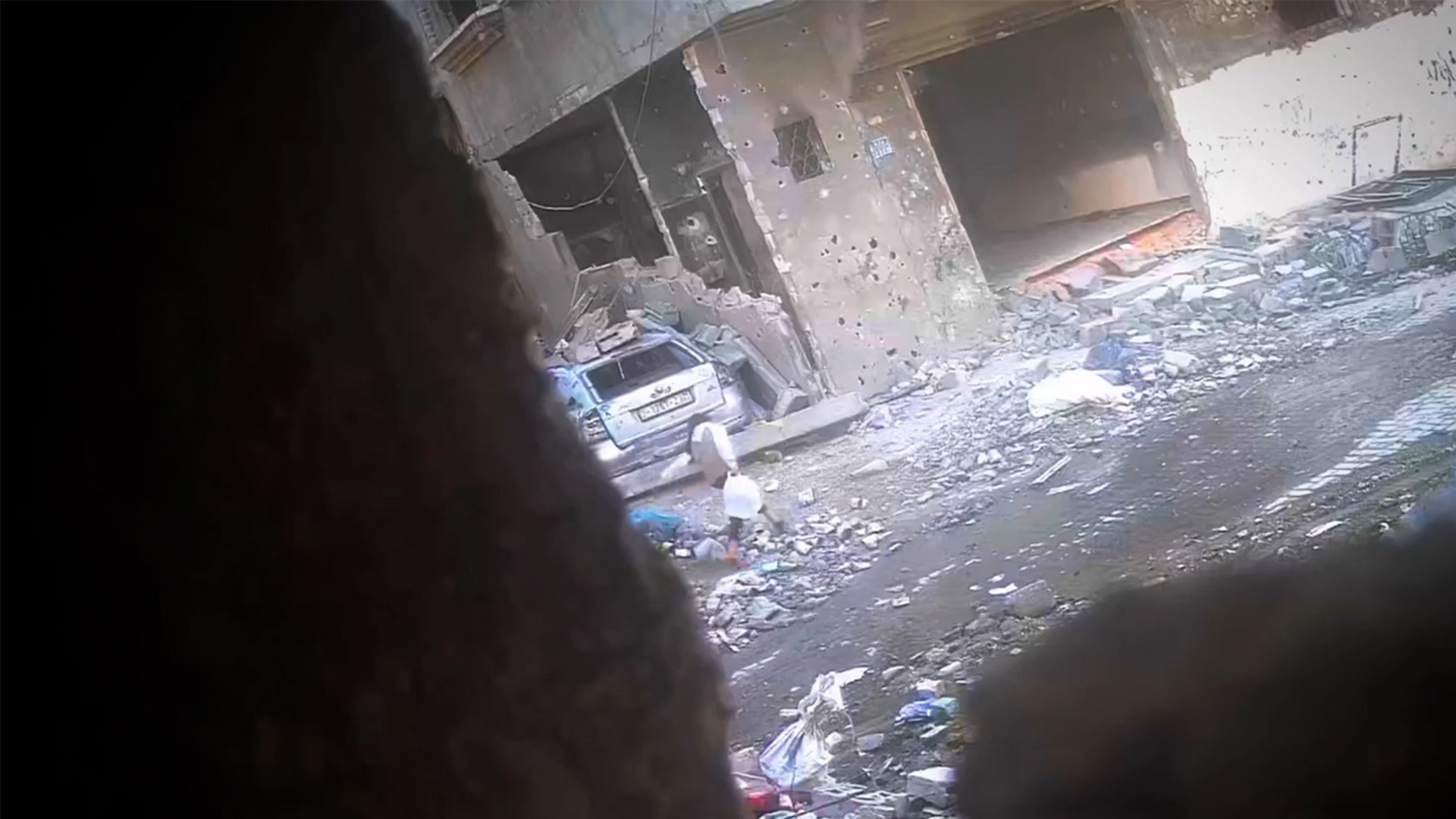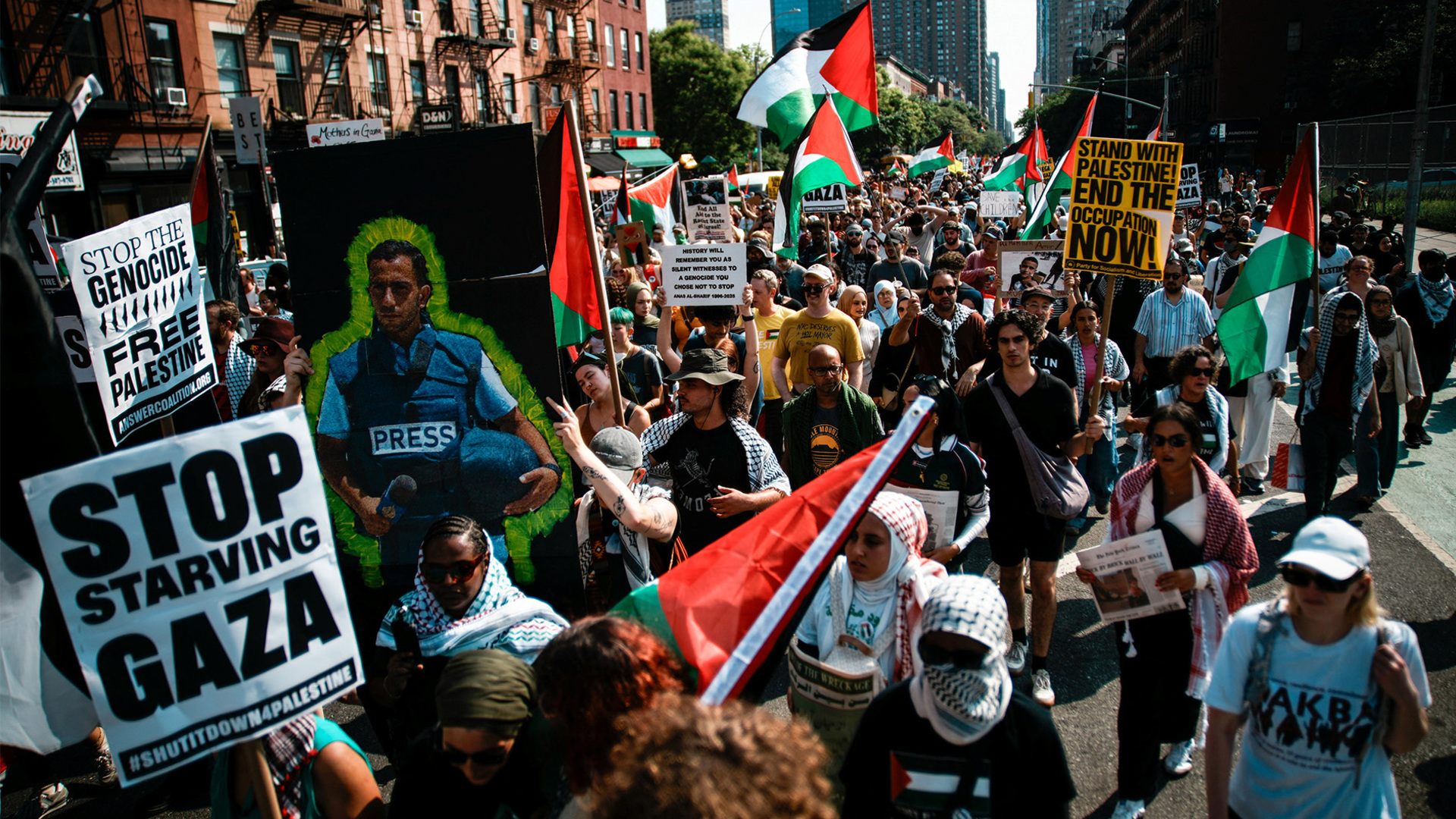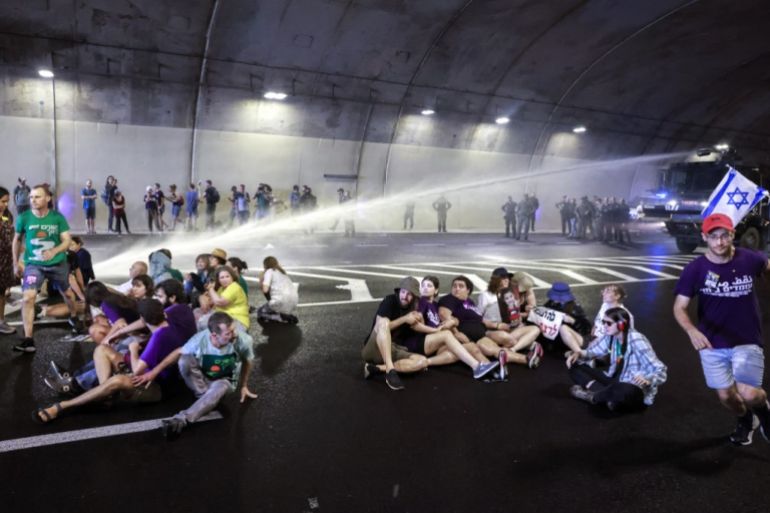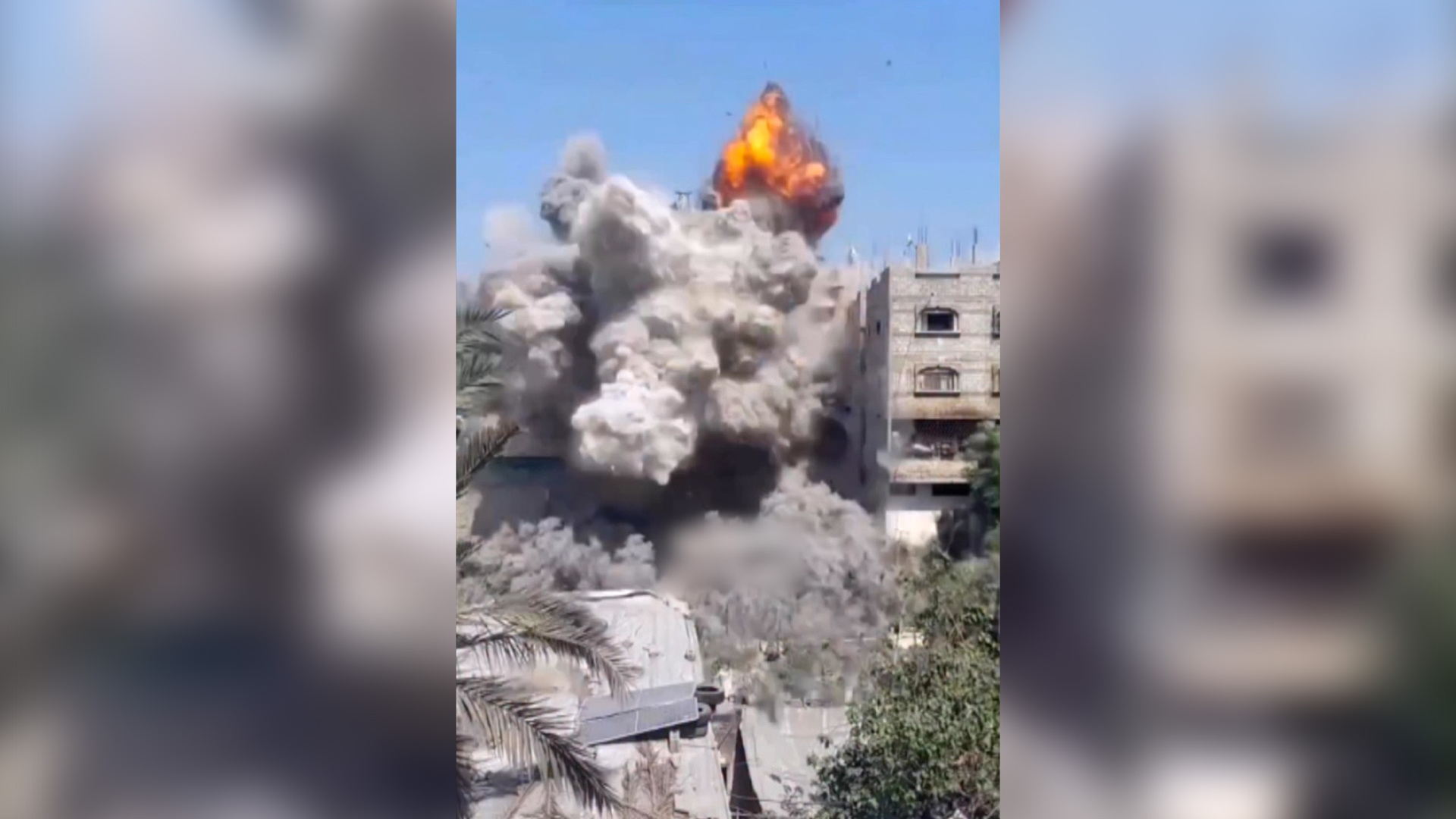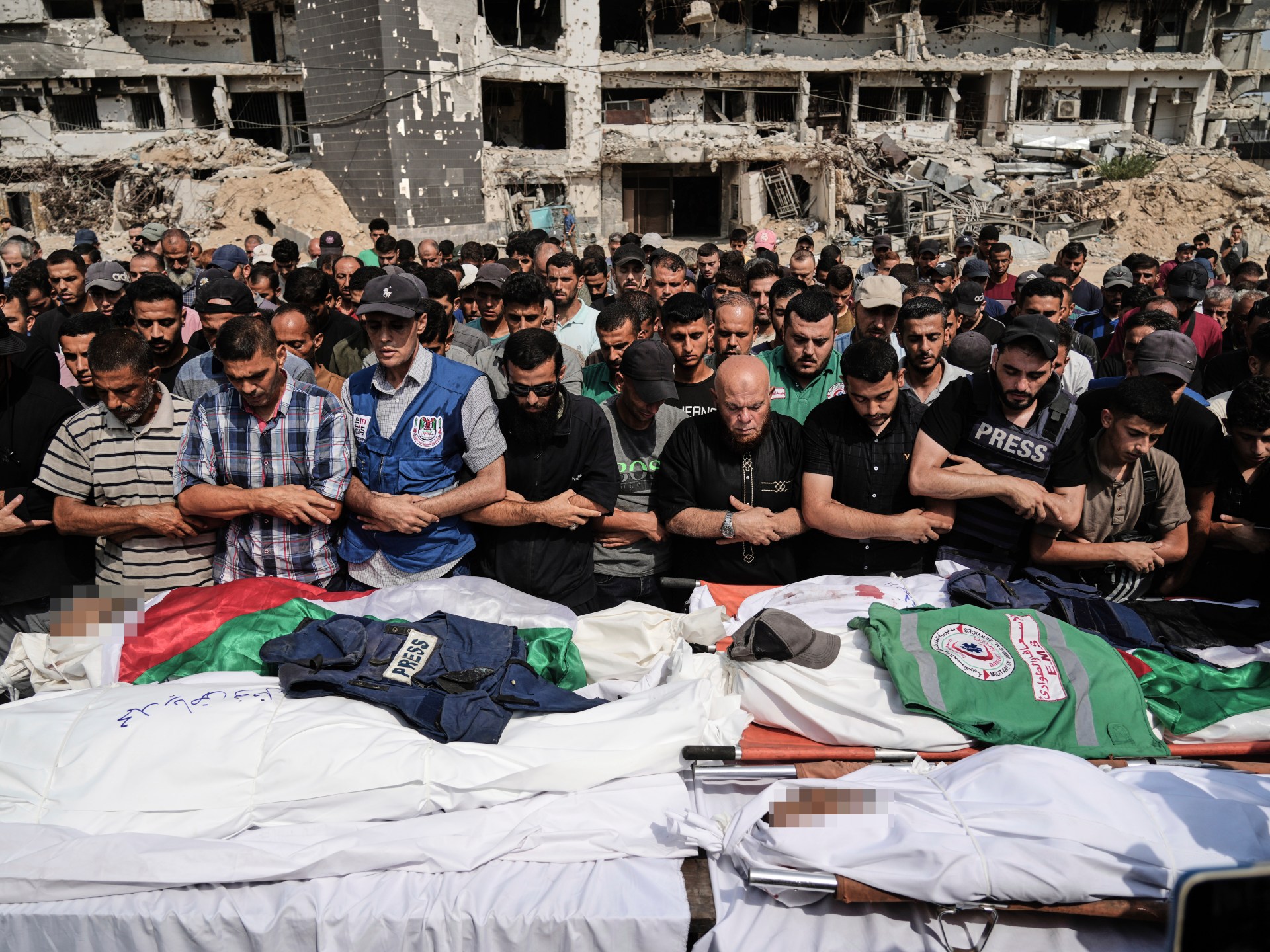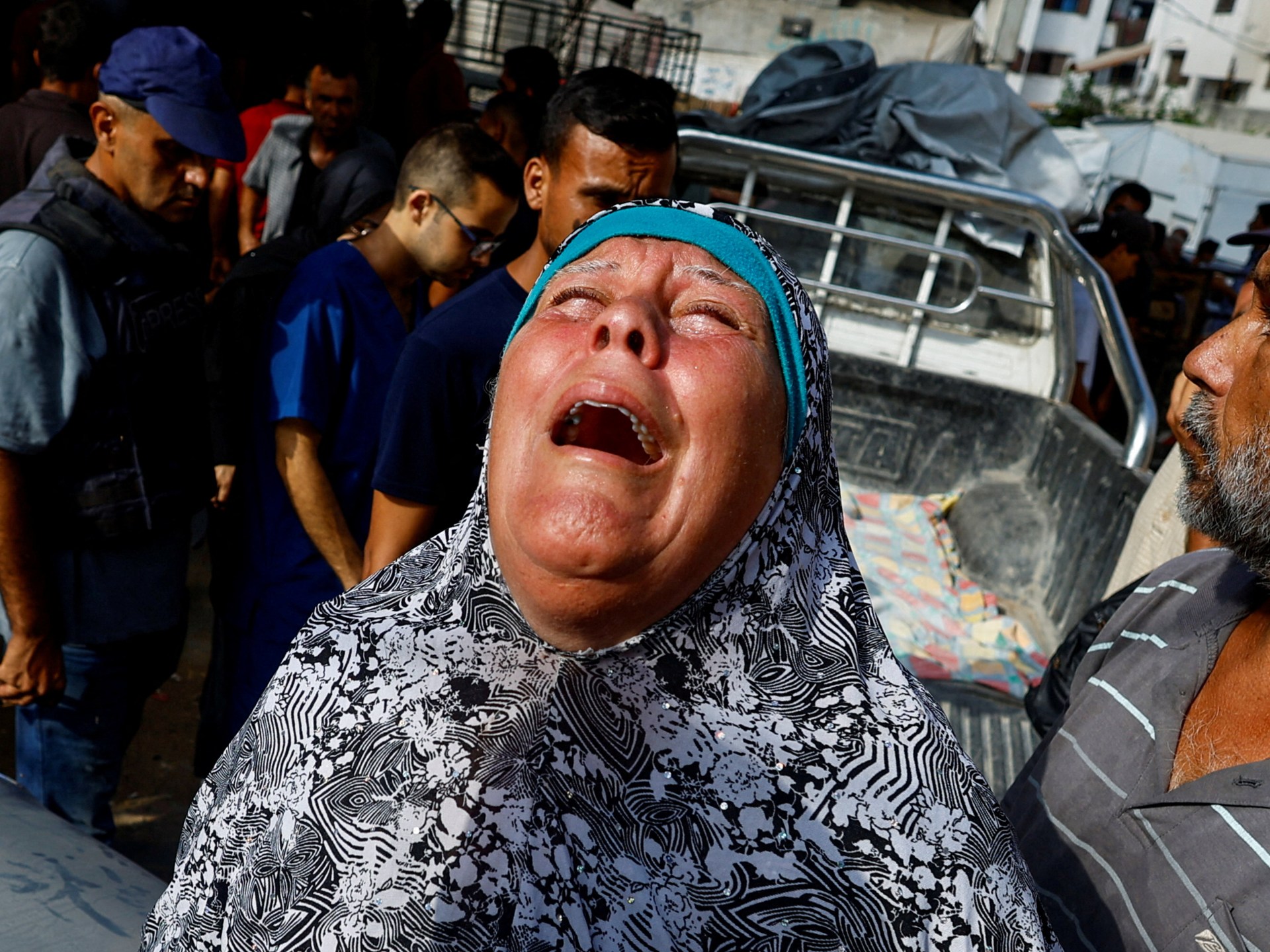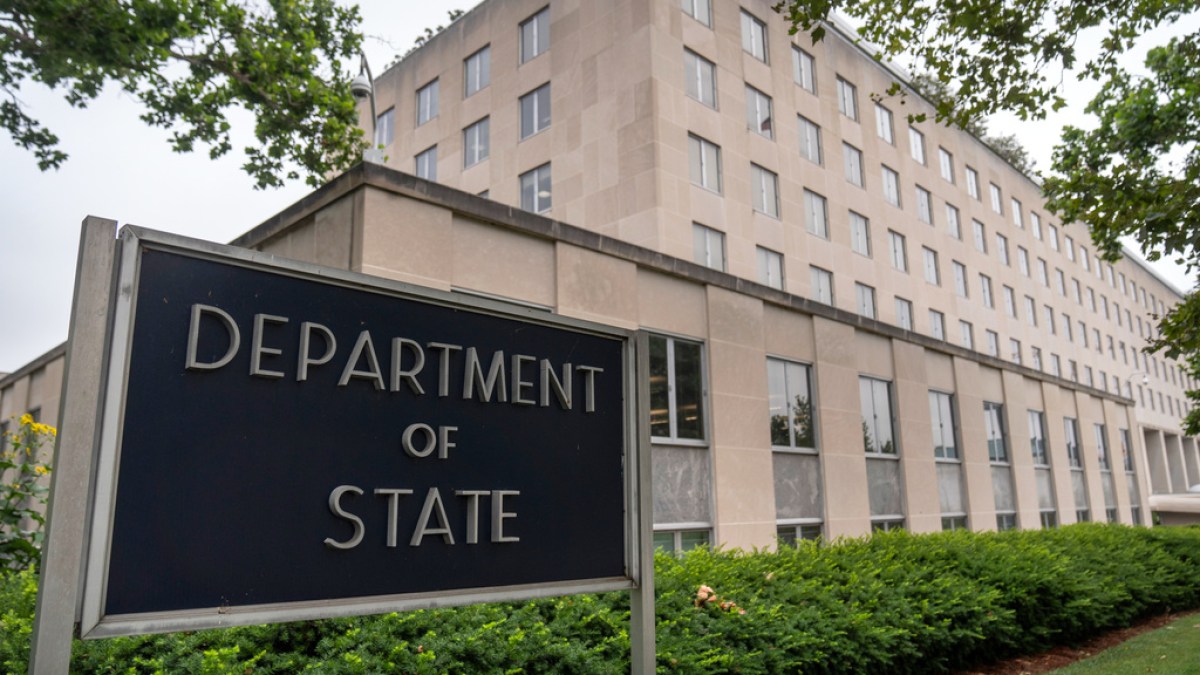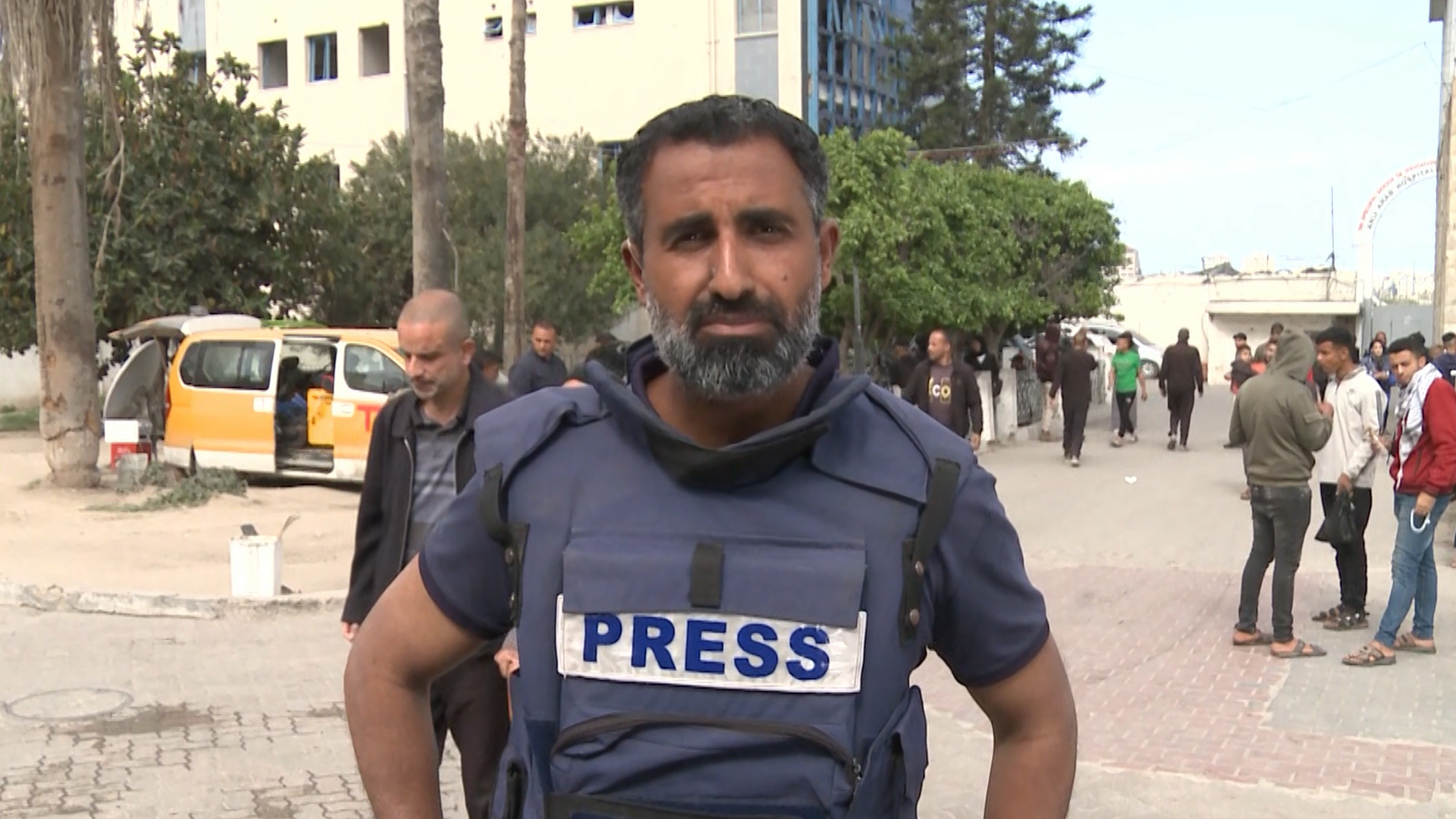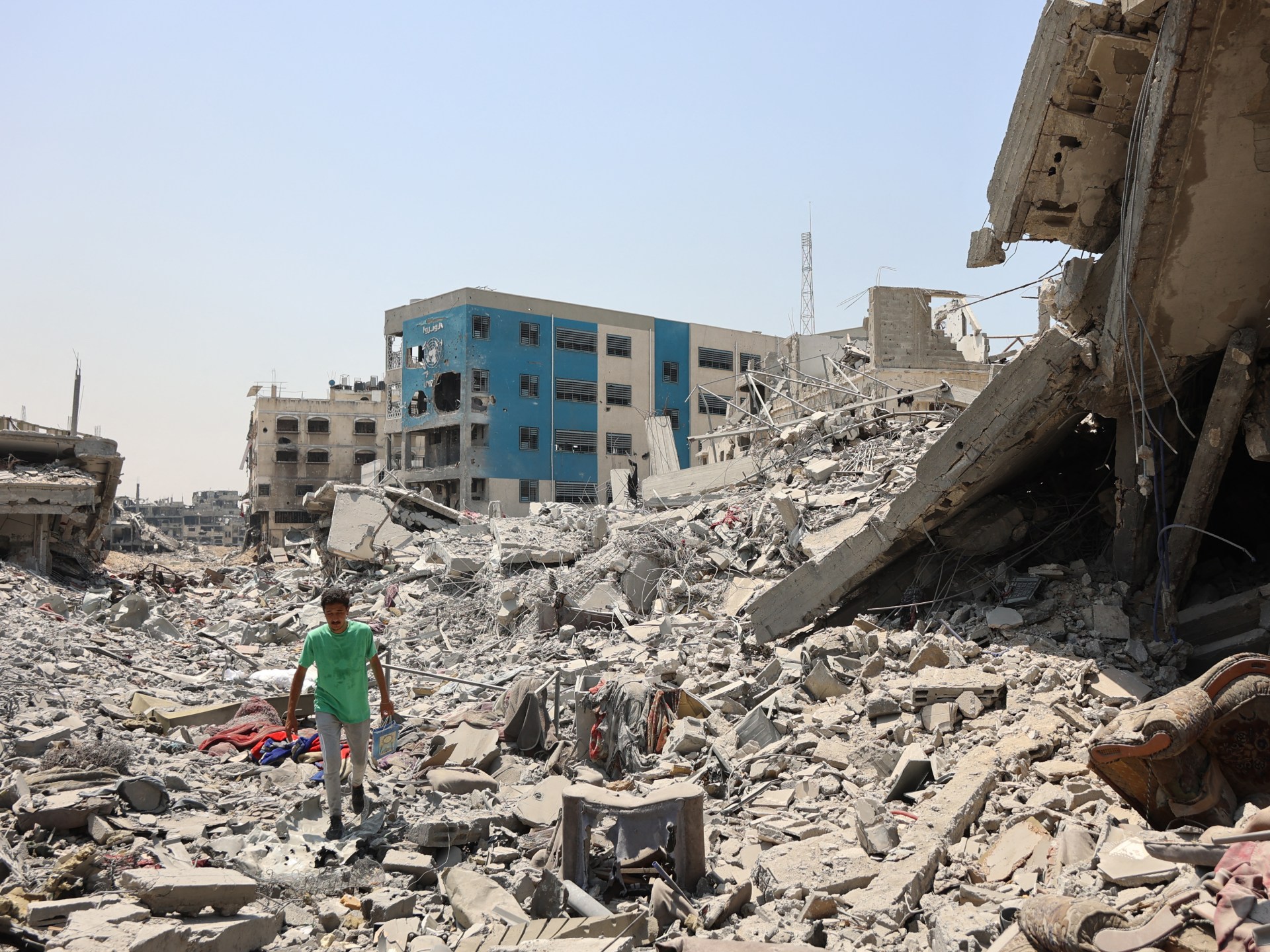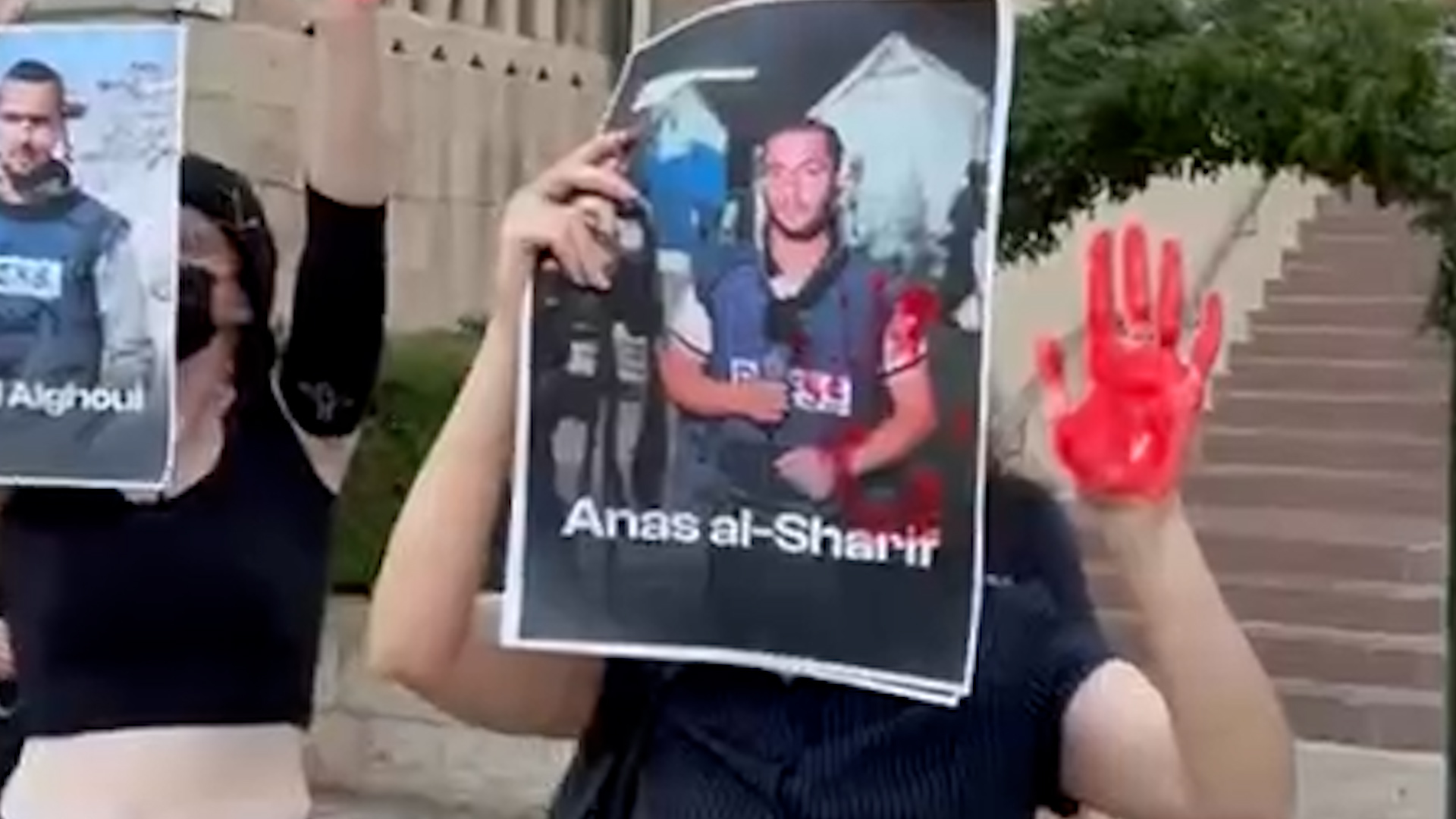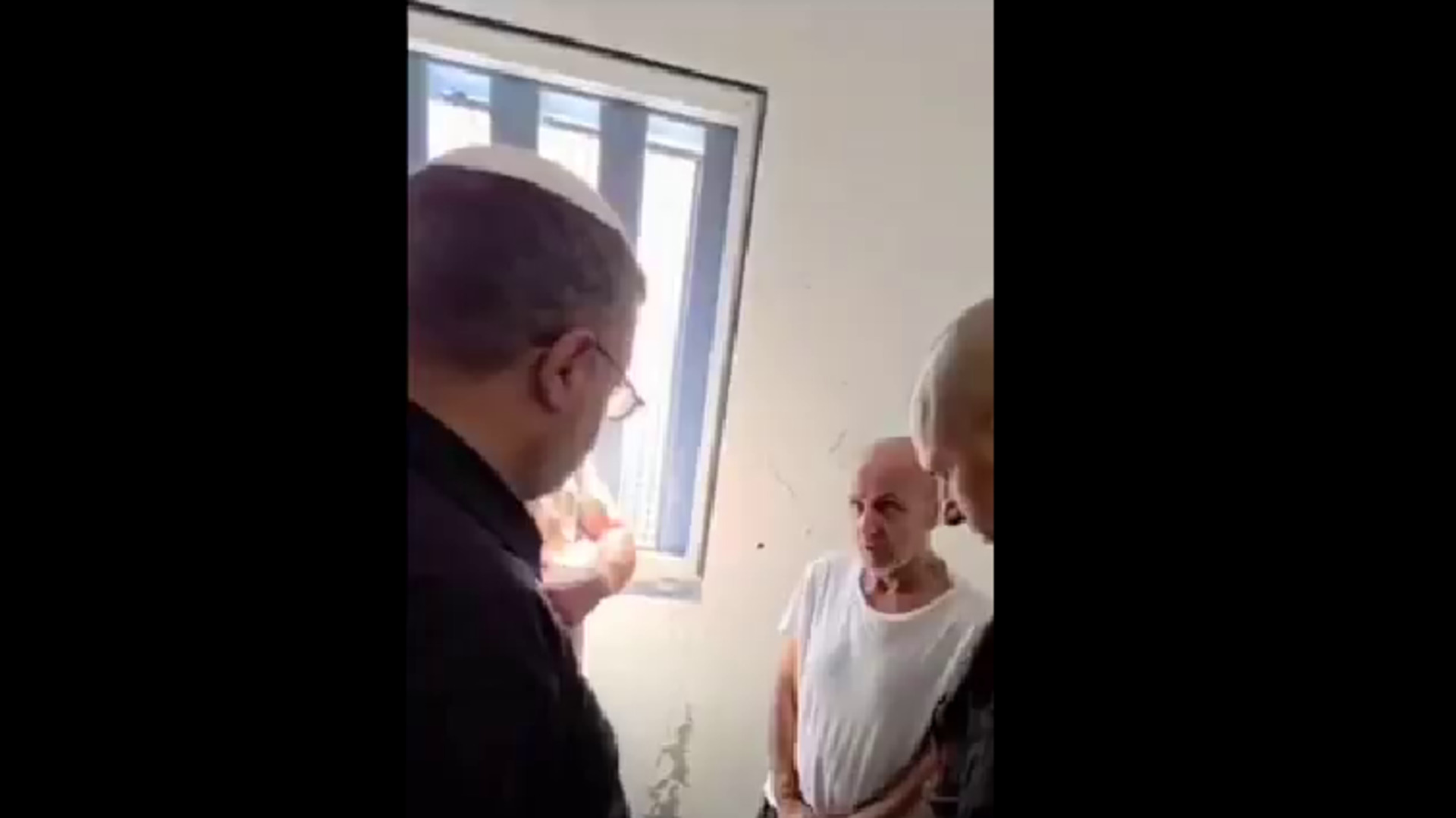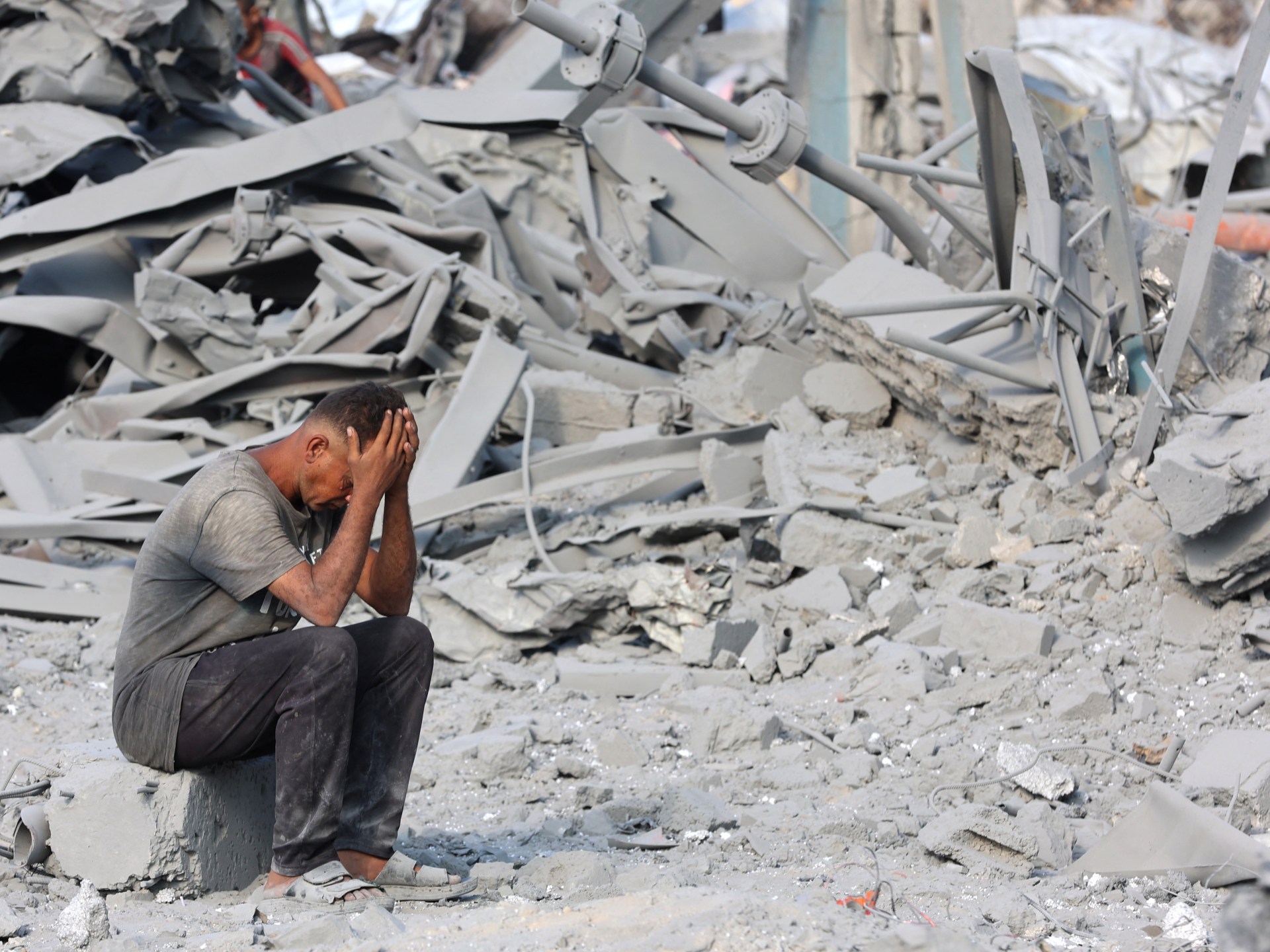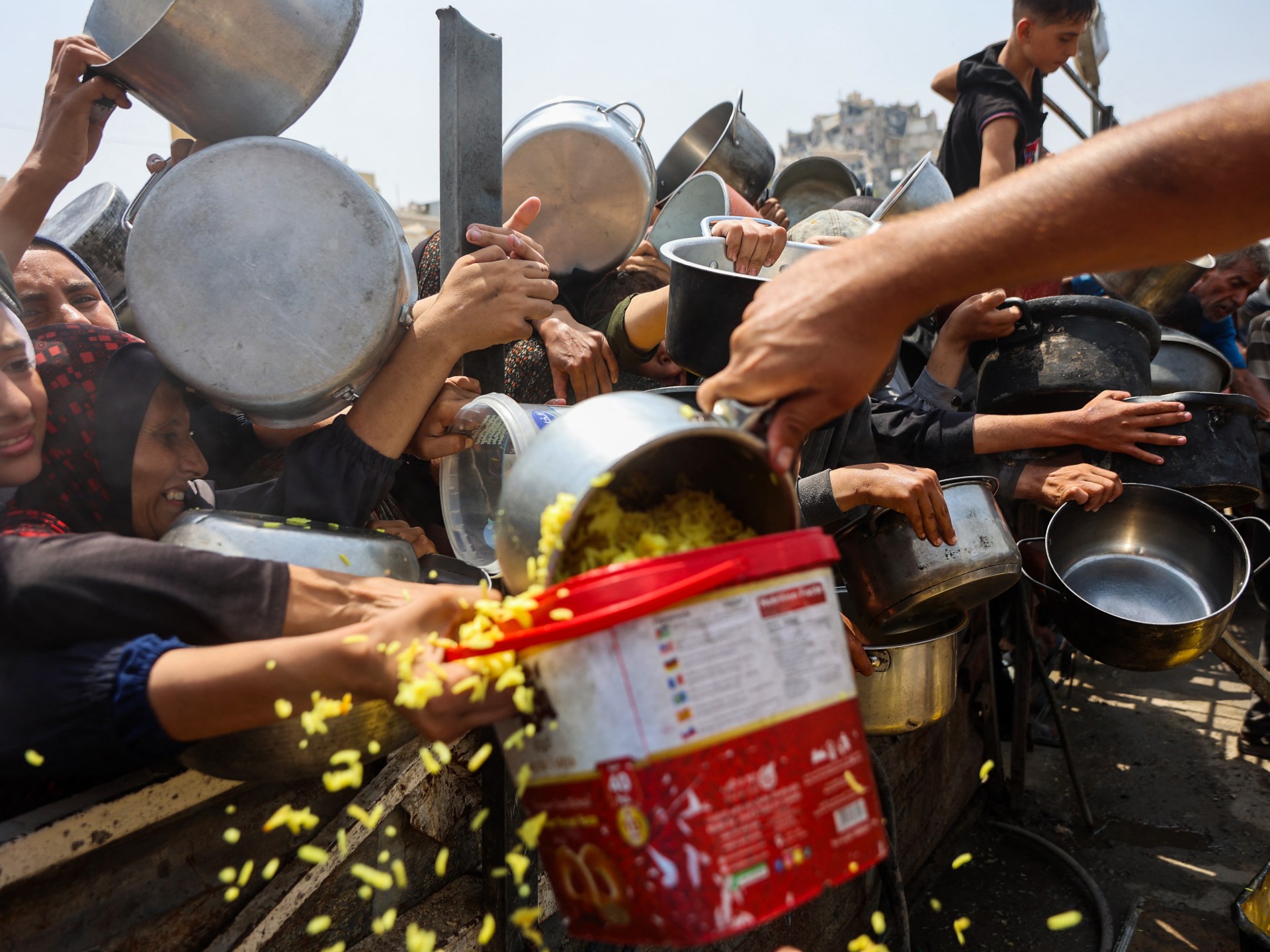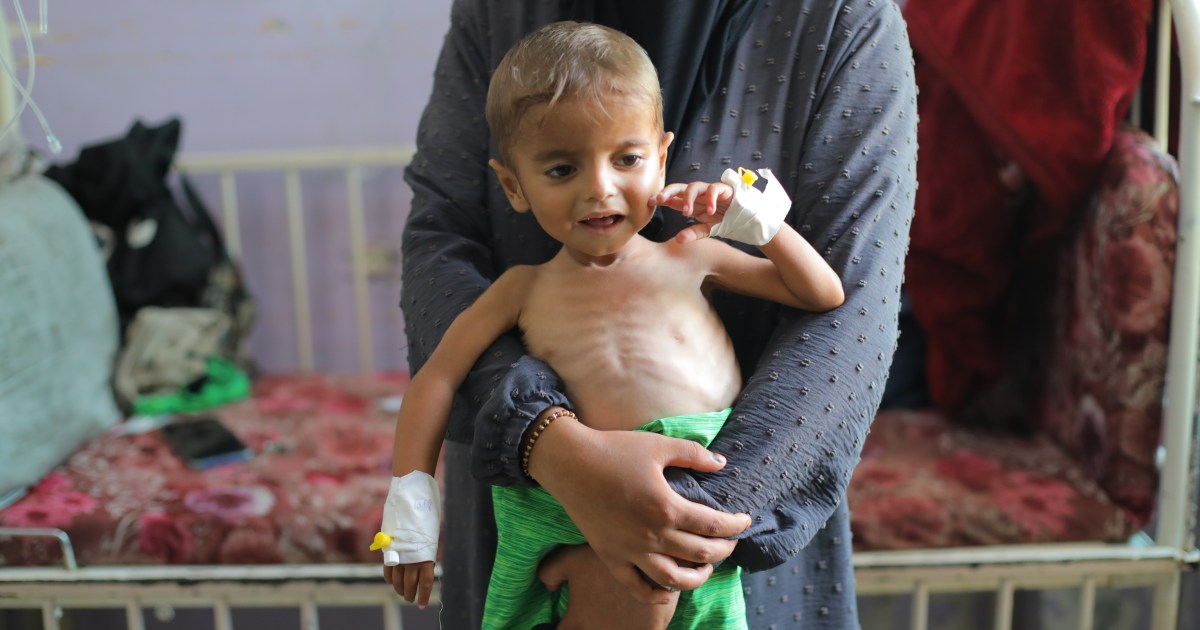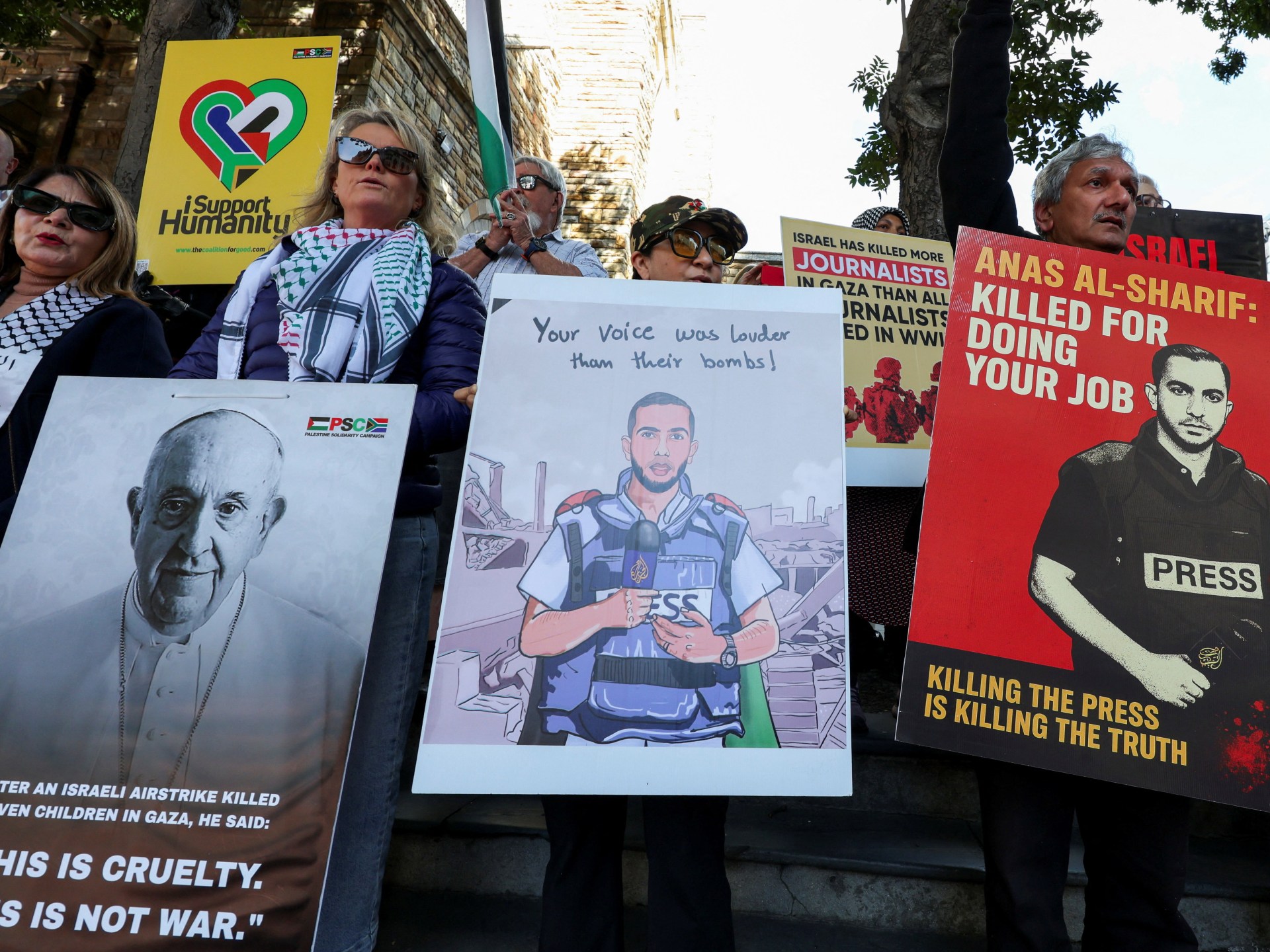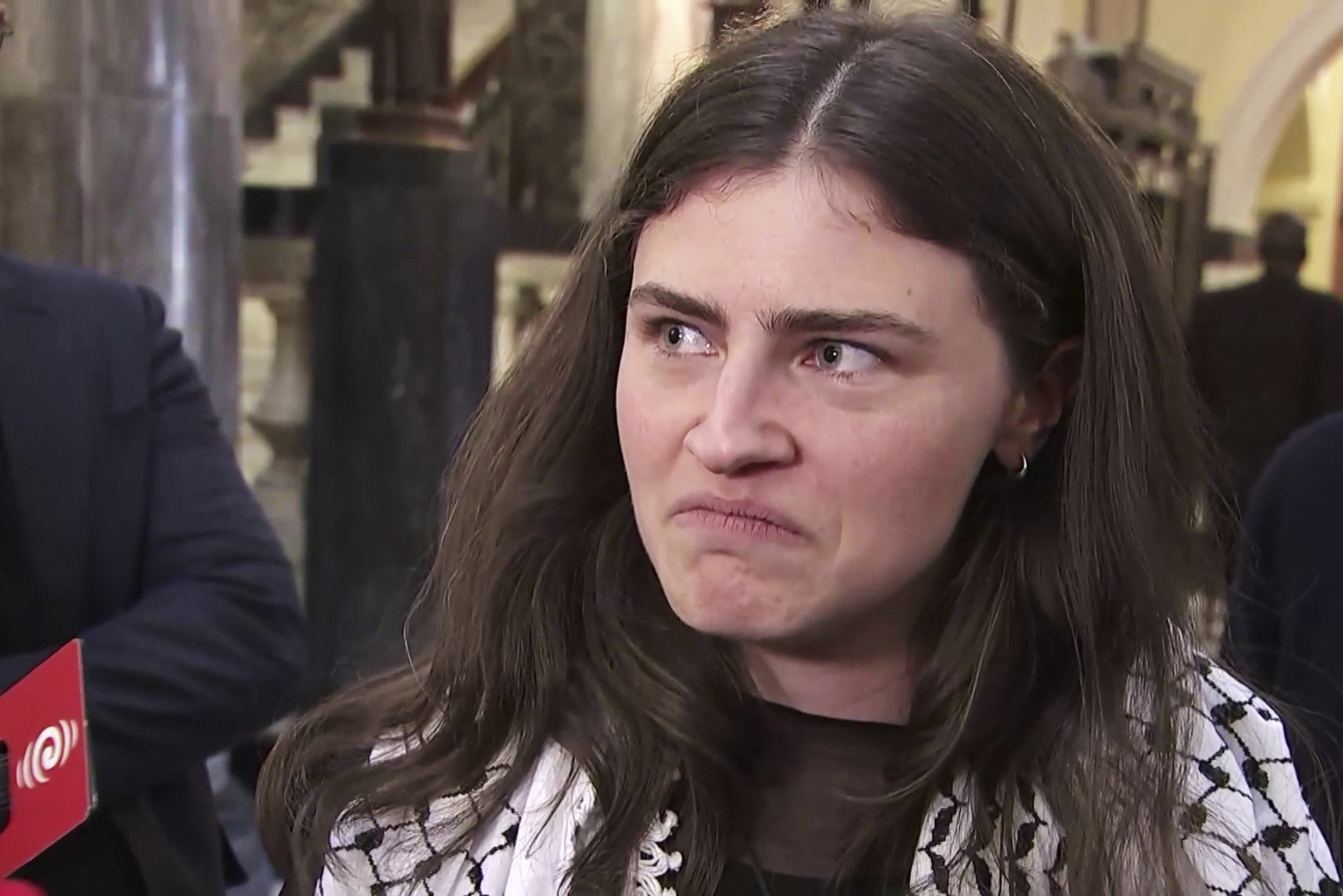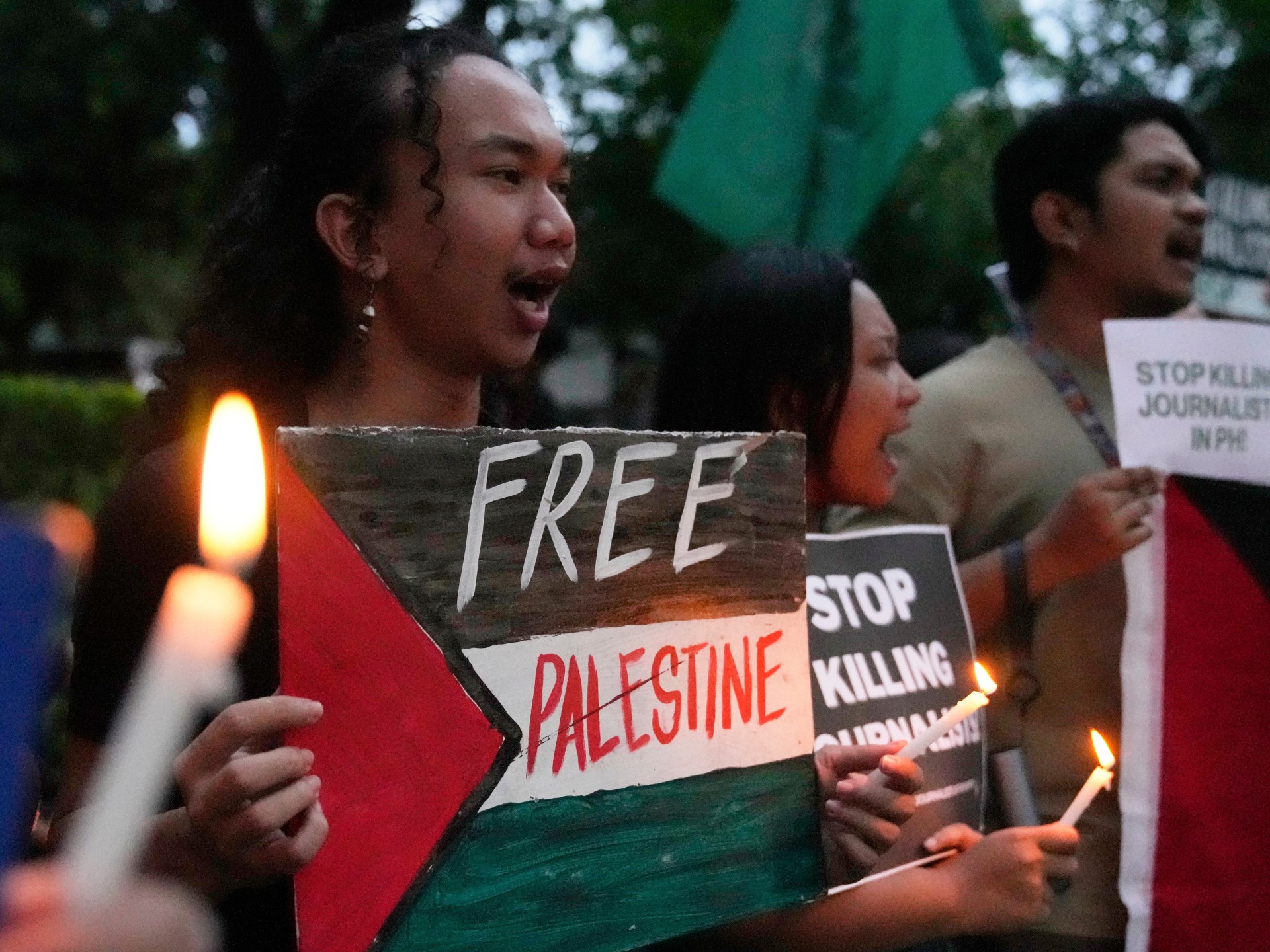Israel intensifies Gaza City attacks, forcing starving Palestinians to flee | Israel-Palestine conflict News
Israel’s military has stepped up attacks on Gaza City as part of its expanded operations aimed at seizing the last major population centre in the enclave, forcing tens of thousands of starving Palestinians to flee again.
The Gaza City neighbourhoods of Zeitoun, Sabra, Remal and Tuffah have particularly borne the brunt of the Israeli bombardments in recent days as a spokesperson for the United Nations Office for the Coordination of Humanitarian Affairs said Israel’s plans to forcibly displace Palestinians to southern Gaza would increase their suffering.
Thousands of families have fled Zeitoun, where days of continuous strikes have left the neighbourhood devastated. At least seven people were killed on Sunday when an Israeli air strike hit al-Ahli Arab Hospital in Gaza City.
Also on Sunday, the Israeli military said tents and equipment to erect shelters will be provided to the Palestinians who have been displaced multiple times in 22 months of war, which has been called an act of genocide by multiple rights organisations.
Al Jazeera’s Hind Khoudary, reporting from Deir el-Balah in central Gaza, said artillery fire and air raids have forced many from their homes.
“The Zeitoun neighbourhood is a very densely populated area, home to many families, including those who have been sheltering there. Residents were surprised when the artillery shelling and the intensive air raids started. Some people stayed. Others started moving. As the violence escalated, many were forced to evacuate – hungry, devastated and displaced yet again, leaving behind everything they had,” Khoudary said.
‘New wave of genocide’
Israel last week announced plans to push deeper into Gaza City and remove its residents to the south, a move that has drawn international condemnation.
Israeli Prime Minister Benjamin Netanyahu, who is wanted by the International Criminal Court for war crimes, said civilians would be moved to “safe zones” even though these areas have also been repeatedly bombed.
Nearly 90 percent of the 2.4 million Palestinians in Gaza remain displaced, and an overwhelming number of them are now facing starvation. At least seven more Palestinians died of starvation in Gaza in 24 hours, Gaza’s Ministry of Health said on Sunday, raising the war’s hunger-related death toll to 258, including 110 children, as a result of Israel’s ongoing siege of the enclave.
On Sunday, Israel killed nearly at least 57 Palestinians, 38 of them aid seekers, taking the total number of Palestinians killed since the war began in October 2023 to nearly 62,000.
Hamas denounced Israel’s plan to set up tents in the south as a cover for mass displacement.
The group said in a statement that the measure amounted to a “new wave of genocide and displacement” and described it as a “blatant deception intended to cover up a brutal crime that the occupation forces prepare to execute”.
There was an atmosphere of despair in Gaza after Israel’s latest forced displacement order, Maram Humaid, Al Jazeera’s online correspondent from Gaza, posted on X.
“There are no words to describe how people in Gaza feel right now. Fear, helplessness, and pain fill everyone as they face a new wave of displacement and an Israeli ground operation,” she posted.
“Family and friends’ WhatsApp groups are full of silent screams and sorrow. God knows people have suffered enough. Our minds are almost paralysed from thinking.”
![An aerial view from a Jordanian military aircraft shows the Gaza Strip, before humanitarian aid is airdropped over it, in Gaza, August 17, 2025. [Alaa Al Sukhni/Reuters]](https://www.occasionaldigest.com/wp-content/uploads/2025/08/2025-08-17T105432Z_1742712988_RC2W8GAWZSN5_RTRMADP_3_ISRAEL-PALESTINIANS-GAZA-AIRDROP-1755432189.jpg)
Displaced and desperate Palestinians are scrambling for scraps of food as they face more bombardment from Israeli forces.
The UN says one in five children in Gaza is malnourished as tens of thousands rely on charity kitchens, whose small portions of food can be their only meal of the day.
“I came at 6am to the charity kitchen to get food for my children, and if I don’t get any now, I have to come back in the evening for another chance,” said Zeinab Nabahan, displaced from the Jabalia refugee camp, told Al Jazeera.
“My children are starving on small amounts of lentils or rice. My children haven’t had bread or any breakfast. They’ve been waiting for me to leave with whatever I can get from the charity kitchen.”
Another resident, Tayseer Naim, told Al Jazeera that “had it not been for God and charity kitchens”, he would not have survived. “We come here at 8am and suffer to get lentils or rice. We suffer a lot, and we leave at midday and walk for about a kilometre.”
‘Man-made famine’
On Sunday, the UN agency for Palestinian refugees (UNRWA) warned that Gaza is facing a “man-made famine” and urged a return to a UN-led distribution system.
“We are very, very close to losing our collective humanity,” Juliette Touma, the agency’s communications director, said in a post on X.
She said the crisis had been fuelled by “deliberate attempts to replace the UN-coordinated humanitarian system through the politically motivated ‘GHF’.”
She warned the alternative system promoted by Israel and the United States “brings dehumanisation, chaos, and death” and stressed: “We must return to a unified, UN-led coordination and distribution system based on international humanitarian law. The abomination must end.”
The World Food Programme (WFP) says despite its teams “doing everything” to deliver food assistance in Gaza, current supplies only meet 47 percent of the intended target.
According to the UN agency, around 500,000 people are now on the “brink of famine”, and that only a ceasefire would allow food assistance to be scaled up to the required levels.
The Government Media Office in Gaza said Israel was deliberately starving Palestinians by blocking essential goods, including baby formula, nutritional supplements, meat, fish, dairy products, and frozen fruits and vegetables.
In a statement on Telegram, it said Israel was carrying out “a systematic policy of engineered starvation and slow killing against more than 2.4 million people in Gaza, including more than 1.2 million Palestinian children, in a complete crime of genocide”.
It warned that more than 40,000 infants face severe malnutrition while at least 100,000 other children and patients are in a similar condition.
Amjad Shawa, director of the Palestinian NGOs Network in Gaza City, told Al Jazeera that aid workers were struggling to respond as resources collapse.
“We are trying to do our best. We are … part of this social fabric. We are linked to the people here, and we are staying with them while Israel threatens to apply its plans to forcibly evacuate Gaza City and destroy the rest of Gaza. There are 1.1 million people here, most of them elderly, women, children and people with disabilities,” Shawa said.
He said workers continued to provide limited meals, medical care and education but warned that “the humanitarian system is collapsing” as Israel strikes aid facilities and restricts supplies.
